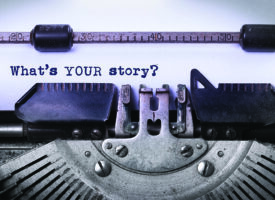I love to write nonfiction, especially about writing, travel, word games, and, oh heck, so many other interests. I’m a writer, after all. I love to write fiction as well (usually in the form of screenplays), but this article is about nonfiction. I am going to discuss two major issues about writing: the writing process and the results of that process.
THE PROCESS OF WRITING
1. I love that a writing process exists – for the most part, sequential – that I can follow to accomplish my goal for any project.
If I focus on one step or stage of the process at a time, I can usually avoid becoming overwhelmed by the enormity of the project. These days, I get excited when I tackle a new book, but in the beginning of my career, the whole prospect of writing a 200-page book was terrifying.
I was talking to my sister the other evening about a “small e-book” she planned to write about a neglected topic for screenwriters. She read her tentative, preliminary outline and asked what I thought.
I said, “Sue, that’s a book.”
Gasp of air. “What? No, it’s going to be 15 or 20 page e-book.” This, from a talented screenwriter.
I replied, “It can be, if you want to do a surface job, but you’ve got a lot to say, you’ve done a lot of research, and have some important insights. I’m thinking it’s at least 100 pages.”
Long, silent pause on the other end of the line. “Okay.” Now, that’s overwhelm.
2. I also love that this process is recursive; that is, you will find new ideas coming to you as you’re revising. Of course, this can also be frustrating.
Knowing the process allows you to make decisions about these new, sometimes unwanted, realizations that changes need to be made. Are you willing to completely restructure and reorganize the book when you thought you were nearly done, just because the new structure would be better for the reader? That’s your decision. I had to do that once, so I know the quandary that situation represents. I changed the structure because I always make the writing best for the reader.
3. I love the moment-by-moment tasks involved in the writing process. These tasks involve mundane moments of simply writing, which sometimes produce moments of pure happiness and joy – giggling with delight – when it all comes together or an idea comes that solves a huge problem.
Of course, some moments are a bit frustrating, as when I confront my pile of notes, papers, and printouts, and I can’t figure out how to put it all together into the form that I envision. But those moments pass, and I’m back to the joy of writing.
4. For me, writing is like assembling a huge jigsaw puzzle, fitting pieces of experience in with pieces of research.
As with most jigsaw puzzles, I can envision the final picture of the project, sometimes even the cover design and interior structure, so I can put the pieces together to complete the vision.
5. Research is often part of the writing process, a task I really enjoy as a lifelong learner (and former college English professor).
6. As a recovering perfectionist (at least, I’m trying), I love that no writing is ever perfect, just due. The fact that I can revise as many times as I want to until I am satisfied with the product, whether a blog post or a 1000 page Because do-overs are allowed, even encouraged, allows me to relax and enjoy the writing process.
THE RESULTS OF WRITING
7. I can create a wonderful array of products, usually books, but also shorter e-books, blog posts, articles, courses and instructional materials, puzzles, and a bunch of other genres. I love the variety available to me as a nonfiction writer, both in the length of products and the manner of presentation.
8. I write because these products can help people solve problems and make their lives better. I write mostly for writers — though I do write on other topics — and helping writers is one of my callings in life. I also help writers through my writing coach and consulting services.
Through my products and services, I can help writers become better writers and fulfill their dreams of publishing their work, so they can then help others with their problems, and the circle of help expands outward.
9. Eventually, as I become better known with a good following, I will be invited to speak at conferences about my favorites topic – writing. And the topic continuously expands, as my experience expands my knowledge base. These conferences also enable me to travel, meet new people, see new places, and get into new situations, all part of the lifelong learning efforts and having fun.
10. My nonfiction writing allows me to fulfill my life purpose of teaching. And I thoroughly enjoy (and am good at) writing instructional materials, so that talent compliments that aspect of writing nonfiction.
CONCLUSION
I love being a writer so much that I would do it for free — and have been doing so for years. And I’m still writing. That’s the sign of a true calling.



